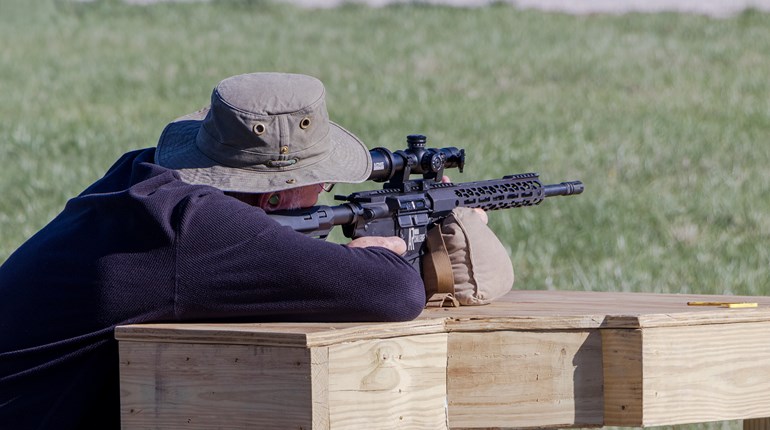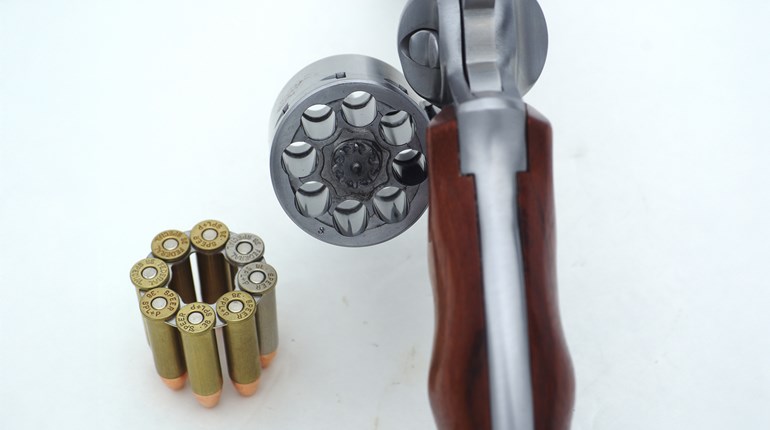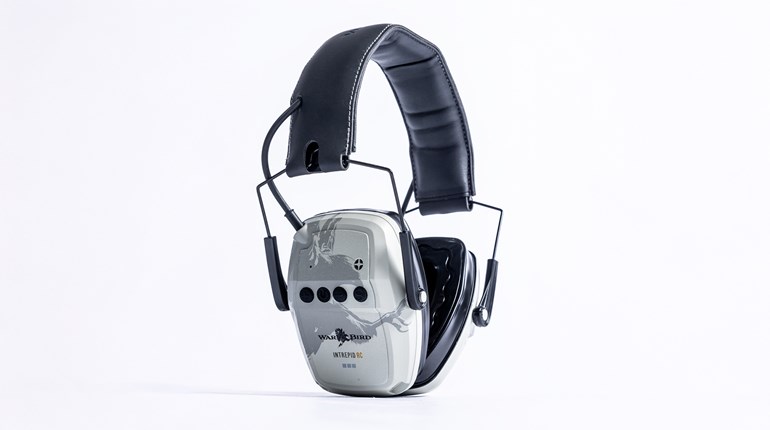
National Championship matches garner the publicity, but local club matches (Tier 1) are the heart and soul of competitive shooting.
A significant number of clubs (whether USPSA, IDPA, Steel Challenge, Action Pistol and others) are now using advanced registration via Practiscore. If you’ve registered for a match lately you’ve undoubtedly noticed that some squads fill quickly, while others take a while—and some never completely fill.
Why is that? In some cases, those that fill fast could be a group of friends who want to shoot together. Or, some C and D class shooters might want to shoot with A or Master shooters to see if they can learn something. Most likely though, is that the registering shooter sees people they’ve shot with before, know they are “Good Squad Mates” and want to shoot on that squad.
Being named a “Good Squad Mate” is a major compliment at the Tier 1 level. But it doesn’t come by accident. It has to be earned. And it’s earned by the actions the shooter takes as they participate within the squad. Here are four key things that can earn a shooter the reputation as a “Good Squad Mate,” instead of a “Squad Skunk.”
Be prompt and organized. No one likes waiting for a shooter who forgot to reload mags and/or speedloaders, or can’t find a piece of gear.

A shooter should have their gear ready to shoot when they arrive at the match, and as soon as they finish a COF (course-of-fire), get reloaded and ready to go again. As well, if a shooter has to leave the squad (bathroom break, etc.) let the RO know so they’re not playing “Where’s Waldo” when that shooter’s turn comes up. If they know a shooter will be temporarily absent they can adjust the shooting order to keep the match moving smoothly.
Participate. Targets need to be painted, pasted and re-set. That’s the responsibility of competitors. Action shooting is not a spectator sport. The RO and Scorekeeper have enough on their plate and don’t need to be wasting squad shooting time by being forced to paste and re-set. A sure sign of poor “Squad Mates” is when you see the ROs having to do that.

When the “Range Clear” command is given, a sufficient number of squad members should be on their feet with pasters or paint in hand. If paper targets are in the mix, don’t get in a hurry. Follow the Scorekeeper and make certain they have scored the targets before pasting them. Also, don’t touch any bullet holes or targets before they are scored.
There are, however, two times when a competitor should not be downrange pasting and re-setting. One is when they’re the “On Deck” (next up) shooter. They should be collecting their gear so they can “Be Prompt.” The second is right after a shooter finishes their COF. They should now be reloading ammo carriers and getting their gear ready for their next run—so they can “Be Prompt.” This is accepted behavior, and no competitor will be chastised for it.

Be careful with unsolicited “advice.” Few things will get one branded a “Squad Skunk” faster than approaching a shooter when they’ve finished their COF and loudly announcing “Ya know where ya screwed up there, buddy!?”
Shooters naturally want to be helpful, especially to obviously new shooters (and that’s a good thing!). But there are proper ways to help newer shooters without making them feel uncomfortable.
Newer shooters are often obvious; either by words or actions. A simple way to help them is to introduce yourself and tell them that if they have any questions about what’s going on you’d be happy to help them. Tell them that you know this is all new to them and it’s a learning experience that all the other shooters there have had to go through. Be a “friend” instead of a “dictator.” Let them see you as a helpful source of knowledge, instead of having them walk away angry, muttering about “That jerk!” under their breath.

One exception is safety violations that occur behind the line and out of the view of the RO. This could include handling firearms behind the line or other cold-range violations. A friendly approach is still best here. After all, they are new and may not know. If they don’t get the “friendly message,” alert the ROs and let them handle it.
Lastly, help with the tear down. Club matches largely depend upon the competitors to assist in breaking down the targets and props for storage after the match. It’s common and expected behavior. The match isn’t over until the range targets and props are cleared and stored. The shooter who packs their gear and peels out of the parking lot after their last shot is fired is not going to be viewed favorably.

It doesn’t take much to earn the title “Good Squad Mate.” It’s just a matter of being a courteous, organized shooter who participates to make the match run smoothly. Those who do that will find a lot of shooters want to be on their squad.
More action shooting articles by Shooting Sports USA Field Editor Chris Christian:
A significant number of clubs (whether USPSA, IDPA, Steel Challenge, Action Pistol and others) are now using advanced registration via Practiscore. If you’ve registered for a match lately you’ve undoubtedly noticed that some squads fill quickly, while others take a while—and some never completely fill.
Why is that? In some cases, those that fill fast could be a group of friends who want to shoot together. Or, some C and D class shooters might want to shoot with A or Master shooters to see if they can learn something. Most likely though, is that the registering shooter sees people they’ve shot with before, know they are “Good Squad Mates” and want to shoot on that squad.
Being named a “Good Squad Mate” is a major compliment at the Tier 1 level. But it doesn’t come by accident. It has to be earned. And it’s earned by the actions the shooter takes as they participate within the squad. Here are four key things that can earn a shooter the reputation as a “Good Squad Mate,” instead of a “Squad Skunk.”
Be prompt and organized. No one likes waiting for a shooter who forgot to reload mags and/or speedloaders, or can’t find a piece of gear.

Being prompt, prepared, organized and ready to shoot when your turn is called keeps the match moving smoothly.
A shooter should have their gear ready to shoot when they arrive at the match, and as soon as they finish a COF (course-of-fire), get reloaded and ready to go again. As well, if a shooter has to leave the squad (bathroom break, etc.) let the RO know so they’re not playing “Where’s Waldo” when that shooter’s turn comes up. If they know a shooter will be temporarily absent they can adjust the shooting order to keep the match moving smoothly.
Participate. Targets need to be painted, pasted and re-set. That’s the responsibility of competitors. Action shooting is not a spectator sport. The RO and Scorekeeper have enough on their plate and don’t need to be wasting squad shooting time by being forced to paste and re-set. A sure sign of poor “Squad Mates” is when you see the ROs having to do that.

These shooters know the match isn’t over until the range, targets and props are cleared and stored.
When the “Range Clear” command is given, a sufficient number of squad members should be on their feet with pasters or paint in hand. If paper targets are in the mix, don’t get in a hurry. Follow the Scorekeeper and make certain they have scored the targets before pasting them. Also, don’t touch any bullet holes or targets before they are scored.
There are, however, two times when a competitor should not be downrange pasting and re-setting. One is when they’re the “On Deck” (next up) shooter. They should be collecting their gear so they can “Be Prompt.” The second is right after a shooter finishes their COF. They should now be reloading ammo carriers and getting their gear ready for their next run—so they can “Be Prompt.” This is accepted behavior, and no competitor will be chastised for it.

These Steel Challenge competitors are ready to head downrange and re-paint the targets as soon as this shooter has finished their stage. “Good Squad Mates” keep matches moving.
Be careful with unsolicited “advice.” Few things will get one branded a “Squad Skunk” faster than approaching a shooter when they’ve finished their COF and loudly announcing “Ya know where ya screwed up there, buddy!?”
Shooters naturally want to be helpful, especially to obviously new shooters (and that’s a good thing!). But there are proper ways to help newer shooters without making them feel uncomfortable.
Newer shooters are often obvious; either by words or actions. A simple way to help them is to introduce yourself and tell them that if they have any questions about what’s going on you’d be happy to help them. Tell them that you know this is all new to them and it’s a learning experience that all the other shooters there have had to go through. Be a “friend” instead of a “dictator.” Let them see you as a helpful source of knowledge, instead of having them walk away angry, muttering about “That jerk!” under their breath.

This shooter reloads his magazines as soon as he’s finished his stage. Now, he can participate—and be prompt when called to shoot again. This is accepted behavior.
One exception is safety violations that occur behind the line and out of the view of the RO. This could include handling firearms behind the line or other cold-range violations. A friendly approach is still best here. After all, they are new and may not know. If they don’t get the “friendly message,” alert the ROs and let them handle it.
Lastly, help with the tear down. Club matches largely depend upon the competitors to assist in breaking down the targets and props for storage after the match. It’s common and expected behavior. The match isn’t over until the range targets and props are cleared and stored. The shooter who packs their gear and peels out of the parking lot after their last shot is fired is not going to be viewed favorably.

No match is over until the range is clear and props stowed. These USPSA shooters prepare to break down a very complex stage.
It doesn’t take much to earn the title “Good Squad Mate.” It’s just a matter of being a courteous, organized shooter who participates to make the match run smoothly. Those who do that will find a lot of shooters want to be on their squad.
More action shooting articles by Shooting Sports USA Field Editor Chris Christian:


































